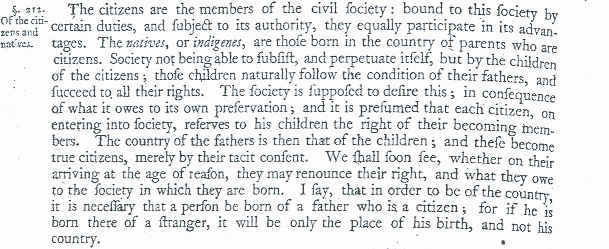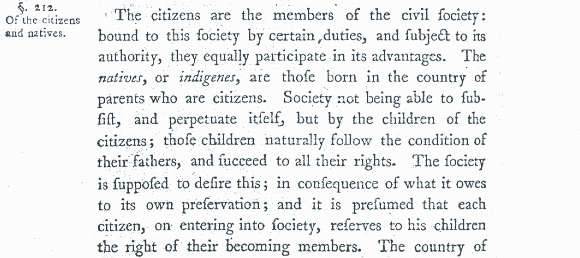Skylar
Diamond Member
- Jul 5, 2014
- 51,810
- 15,336
- 2,180
Nowhere in the code will you find the term 'natural norn Citizen'. Nowhere! Attempting to conflate 'Citizen' and 'natural born Citizen' is futile. They are not the same.I have provided nothing but historic case law and statutes in this thread and the other one proving Cruz is naturalized at birth. You provide nothing, absolutely nothing.I've proved it alreadyAll of that obfuscation and in the end Ted Cruz, born in Canada, was naturalized at birth
Can you prove he was naturalized?
No, your unsubstantiated claims haven't proven anything.
If you have proof he was naturalized, show it.
Start with the date it occurred. Copies of the paperwork would also be useful.
Pointing to the Constitution and claiming it says things it doesn't is not helping your case.
There is no statute in the entire USC that says that Cruz was naturalized. Which you know. Which is why you won't quote the United States Code.
Your claims is that Cruz was naturalized. I'm challenging you to show us where in the US code that the law recognizes a citizen at birth is naturalized. With the notable exception of Puerto Ricans.
You can't. There is no such law. Cruz was a citizen at birth. Which the USC holds in the same class of citizens as those born on US soil. And holds citizens at birth distinct and separate from naturalized citizens.

